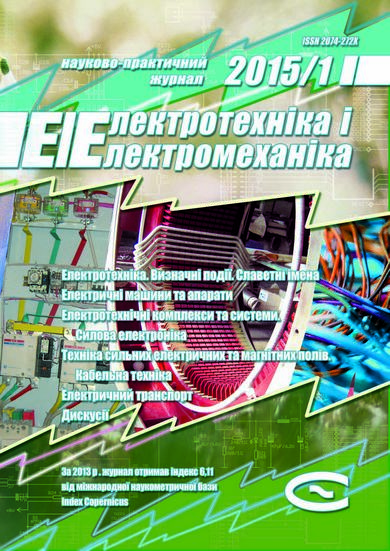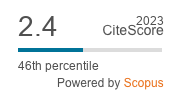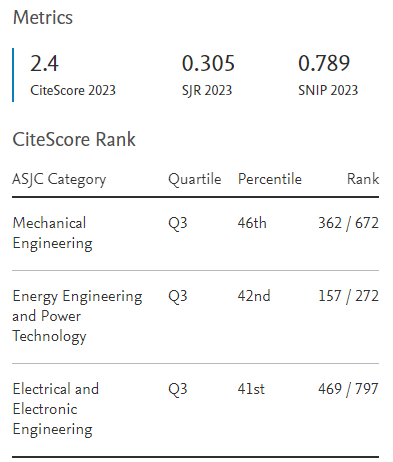ASSESSMENT OF THE RESOURCE CONSUMPTION OF OIL-FILLED POWER TRANSFORMER PAPER INSULATION BASED ON UPDATED AGING INTEGRAL
DOI:
https://doi.org/10.20998/2074-272X.2015.1.03Keywords:
aging integral, power transformer, insulation wearing out, prognosis, models of technical condition and operating factorsAbstract
Refinement of the aging integral formula is proposed. A computer model of insulation wearing out is developed using refined formula. Computer simulation of power transformer insulation wearing out over the next ten years of life is carried out.References
Vasin V.P., Dolin A.P. On the problem of residual life assessment of power oil-filled transformers insulation. Novoe v rossiiskoi elektroenergetike – New in Russian Power Industry, 2008, no.3, pp. 42-55. (Rus).
Vasin V.P., Dolin A.P. Resource of power oil-filled transformers insulation. ELEKTRO. Elektrotekhnika, elektroenergetika, elektrotekhnicheskaia promyshlennost' – ELEKTRO. Electrical engineering, power industry, electrical industry, 2008, №3. pp. 12-17. (Rus).
IEC 60076-7 Ed. 1: Power transformers – Part 1: Loading guide for oil-immersed power transformers. Vol. 14/512/FDIS.
Lizunov S.D., Lokhanin A.K. Silovye transformatory. Spravochnaia kniga [Power transformers. Handbook]. Moscow, Energoizdat Publ., 2004. 616 p. (Rus).
Downloads
Published
How to Cite
Issue
Section
License
Copyright (c) 2015 V. V. Vasilevskij

This work is licensed under a Creative Commons Attribution-NonCommercial 4.0 International License.
Authors who publish with this journal agree to the following terms:
1. Authors retain copyright and grant the journal right of first publication with the work simultaneously licensed under a Creative Commons Attribution License that allows others to share the work with an acknowledgement of the work's authorship and initial publication in this journal.
2. Authors are able to enter into separate, additional contractual arrangements for the non-exclusive distribution of the journal's published version of the work (e.g., post it to an institutional repository or publish it in a book), with an acknowledgement of its initial publication in this journal.
3. Authors are permitted and encouraged to post their work online (e.g., in institutional repositories or on their website) prior to and during the submission process, as it can lead to productive exchanges, as well as earlier and greater citation of published work.





